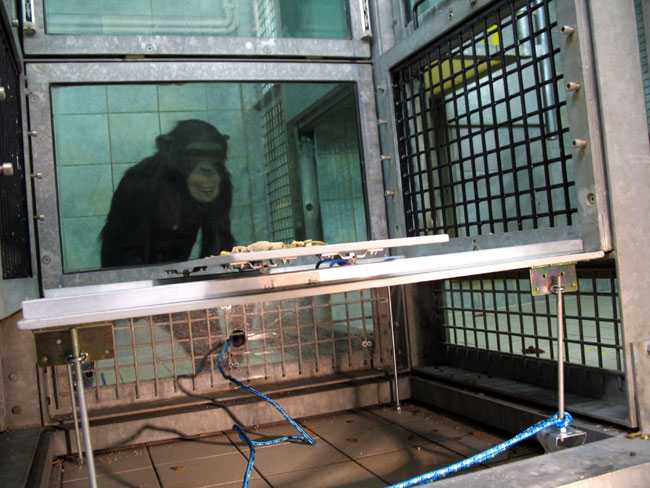The Bright Side of Spite Revealed

Spite is a dark emotion that nonetheless seems to help set humanity apart from its closest primate relatives, new research suggests.
The sinister emotion that angrily dwells on how unfair the world is could shed light on the unusual human notion of fair play, and scientists say the research could help understand how and why these dark and light sides of human nature evolved.
One concept some researchers think is unique to humans is the idea of fairness—that everyone should share the same advantages and disadvantages. To investigate whether chimpanzees believe in fairness, researchers examined how they responded to what humans might consider unfair situations.
First, chimps were put one at a time in cages that initially had access to food on a sliding table outside the cage. Each ape also had a rope that collapsed the table when pulled, crashing food onto the floor out of reach.
Unsurprisingly, the chimpanzees almost never collapsed the table while they themselves ate. However, when a second chimp in a different cage stole food from the first by sliding the table out of reach, the first collapsed the table 50 percent of the time. This suggests chimpanzees are vengeful—that is, they vindictively retaliate against others who deliberately profited at their expense.
"It's extraordinary how angry the chimps would get when food was stolen from them—they just became exploding black balls of rage," said evolutionary biologist Keith Jensen at the Max Planck Institute for Evolutionary Anthropology in Leipzig, Germany.
On the other hand, when chimpanzees could see food on the table but were barred from eating, they apparently did not choose to collapse the table just because they saw other apes dining from it. This suggests chimps are not spiteful—they will not punish others simply for blamelessly having benefits that they do not, findings detailed online July 16 in the Proceedings of the National Academy of Sciences.
Get the world’s most fascinating discoveries delivered straight to your inbox.
UCLA primatologist Joan Silk said this work represents "the first experiments to ask whether or not chimps will also display what we normally think of as the more negative emotions. In humans, it turns out our ability to sustain cooperation probably depends on our willingness to use punishments, so it's important to look at how true this is in other species as well."
The presence of spite in humanity could shed light on why people can cooperate so well with each other. "Spite is a bit nasty, but it reflects how much you care what actually happens to the other guy," Jensen told LiveScience. "The fact that humans are sensitive to fairness has a dark side, but also a good side."
"Spite, envy and jealousy are definitely not the best human qualities, but we have them and can't get rid of them, so it's interesting to study them to put humans in a wider context and understand what's weird about us," Jensen added.
- Video: Jane Goodall's Wild Chimpanzees
- 10 Amazing Things You Didn't Know about Animals
- All About Monkeys



